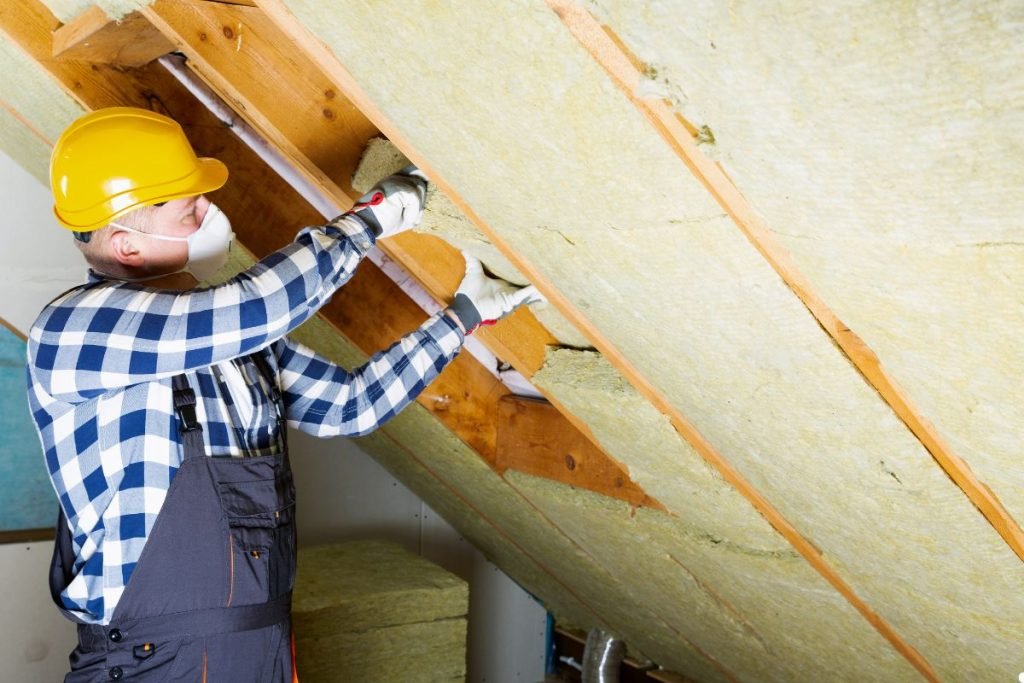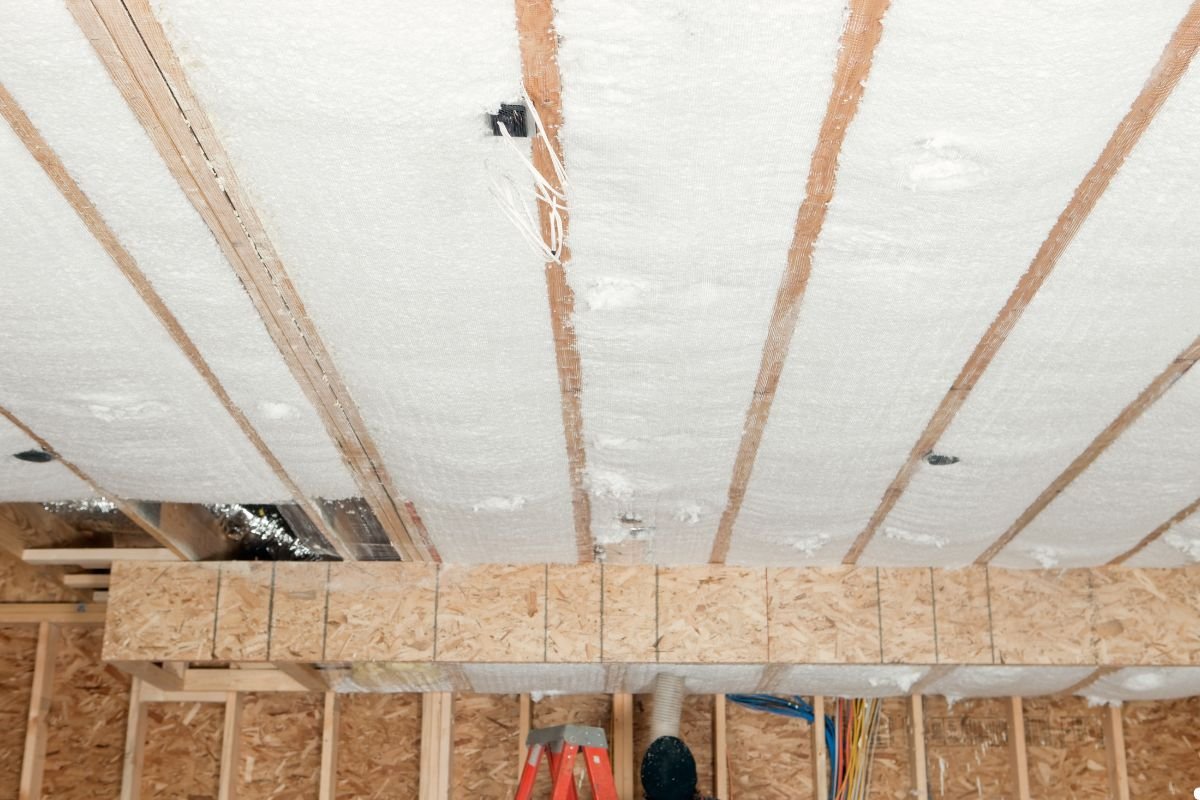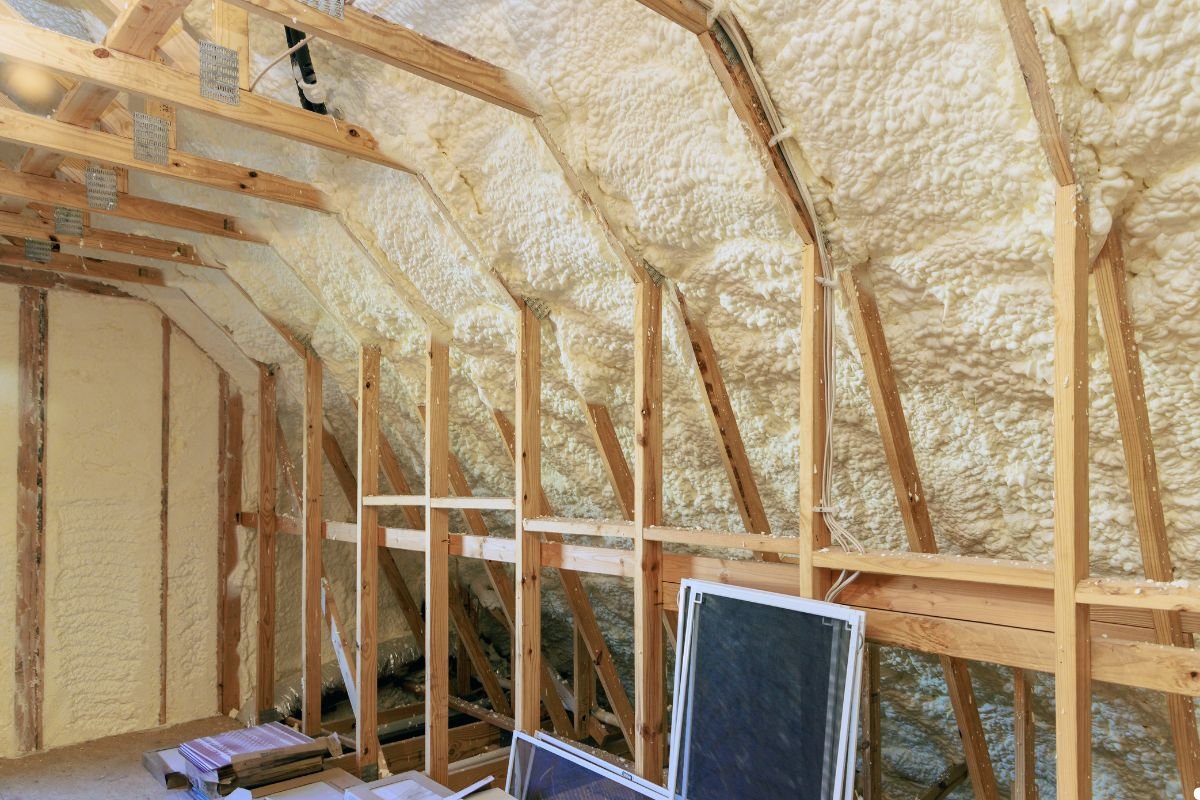
Is your home truly energy-efficient? Many homeowners unknowingly sabotage their energy savings due to common misconceptions about insulation. This guide cuts through the noise, revealing the truth about R-value, insulation types, proper installation, and more, so you can make informed decisions and optimize your home’s comfort and energy performance. Call us today to learn how we can help you save energy and stay comfortable year-round!
Why Insulation Misconceptions Matter
Insulation is a critical component of any home, responsible for maintaining comfortable temperatures year-round and significantly reducing energy bills. However, misinformation can lead to costly mistakes. Believing that “more is always better” or that “all insulation is the same” can result in wasted money, compromised comfort, and even potential health problems. Investing in high-quality attic insulation can lead to significant savings on your energy bills. Understanding the facts is essential for making informed decisions that benefit your home and your wallet.

Understanding R-Value
The Truth About R-Value
R-value is a measurement of thermal resistance – how well insulation resists the flow of heat. A higher R-value generally indicates better insulation. However, R-value is just one piece of the puzzle. It’s measured under ideal laboratory conditions, and real-world performance can vary significantly.
Factors Affecting R-Value in Real-World Scenarios
Several factors can impact the actual R-value of insulation in your home, including:
- Compression: Compressed insulation loses its effectiveness.
- Airflow: Air moving through or around insulation reduces its performance.
- Moisture: Wet insulation loses much of its R-value.
- Installation Quality: Gaps, voids, and improper installation drastically reduce effectiveness.
The Importance of Proper Installation
Even the highest R-value insulation will perform poorly if not installed correctly. Professional installation ensures proper fit, minimizes gaps, and addresses potential moisture problems.
Common Insulation Myths
Myth 1: All Insulation is the Same
This is simply not true! There are various types of insulation, each with its own properties, R-value, and best uses.
Different Types of Insulation and Their Best Uses
- Fiberglass: A common and affordable option, suitable for attics, walls, and floors.
- Cellulose: Made from recycled paper, it’s an environmentally friendly option that provides good thermal performance.
- Spray Foam: Offers excellent air sealing and high R-value, ideal for hard-to-reach areas and sealing gaps.
- Batt Insulation: Pre-cut sections of insulation, easy to install between studs.
Matching Insulation to Your Climate
The best type of insulation for your home depends on your climate and specific needs. Consult with a professional to determine the optimal choice.
Cost vs. Benefit of Different Insulation Types
Consider the long-term cost savings and energy efficiency benefits when choosing insulation. While some options may have a higher upfront cost, they can provide superior performance and pay for themselves over time.
Myth 2: More Insulation is Always Better
While adequate insulation is crucial, simply piling on more insulation doesn’t always translate to better results.
The Point of Diminishing Returns
There’s a point where adding more insulation provides minimal additional benefit. Exceeding recommended R-values can be a waste of money.
Risks of Over-Insulating
Over-insulating can actually create problems, such as trapping moisture and leading to mold growth.
Finding the Right Balance for Your Home
The key is to find the right balance of insulation for your climate, home construction, and energy goals.
Myth 3: Insulation is Only for Cold Climates
This is a common misconception. Insulation is just as important in hot climates as it is in cold climates.
Insulation Benefits in Hot Climates
Insulation helps keep heat out of your home in the summer, reducing the need for air conditioning.
Reducing Energy Bills Year-Round
By maintaining a consistent temperature, insulation lowers energy consumption in both heating and cooling seasons.
Keeping Your Home Comfortable
Insulation provides a more comfortable living environment by minimizing temperature fluctuations.
Myth 4: DIY Insulation is Always a Good Idea
While some insulation projects are suitable for DIY, others require professional expertise.
When to Hire a Professional
Complex projects, such as spray foam insulation or those involving significant air sealing, are best left to professionals.
Risks of Improper Installation
Improperly installed insulation can lead to reduced effectiveness, moisture problems, and even health hazards.
Ensuring Proper Sealing and Ventilation
Professionals have the tools and knowledge to ensure proper sealing and ventilation, maximizing the benefits of insulation.

The Importance of Proper Installation
Why Professional Installation Matters
As emphasized throughout this article, proper installation is paramount. It’s not just about stuffing insulation into walls; it’s about creating a complete thermal barrier. With our services, you can trust that every step of the installation process meets the highest industry standards.
Sealing Air Leaks
Air leaks are a major source of energy loss. Professional installers know how to identify and seal these leaks.
Preventing Moisture Problems
Proper installation includes measures to prevent moisture buildup, which can damage insulation and lead to mold.
Ensuring Optimal Performance
Professional installation guarantees that your insulation performs as intended, providing maximum energy savings and comfort. Ensure optimal energy savings and comfort with expert insulation installation. Contact us today for a consultation!
Choosing the Right Insulation Contractor
What to Look for in an Insulation Contractor
Selecting the right insulation contractor is essential for a successful project.
Licensing and Insurance
Ensure the contractor is properly licensed and insured to protect yourself from liability.
Experience and Expertise
Choose a contractor with a proven track record of successful insulation projects.
Getting Multiple Quotes
Obtain multiple quotes from different contractors to compare pricing and services.
Conclusion
Making Informed Insulation Decisions
By debunking common misconceptions, we hope to empower you to make informed insulation decisions. Remember, insulation is a long-term investment that can significantly improve your home’s comfort, energy efficiency, and value. Don’t let misinformation lead you astray. Call us today to learn more and get expert advice on the best insulation solutions for your home!
